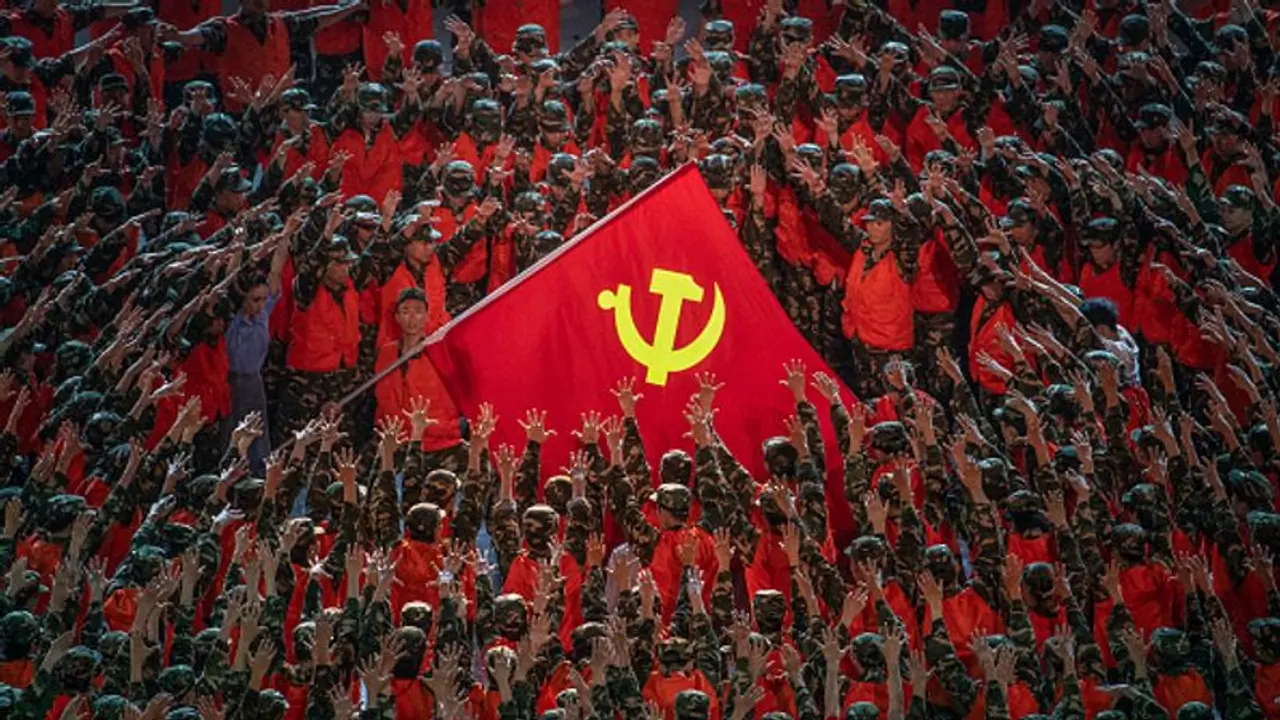India is the only nation to understand the dangers posed by China to global peace and order, say experts.
New Delhi should evolve its plans to counter China's eight-year-old Belt and Road Initiative, security experts have observed.

The two strategic affairs experts, Cleo Paskal and Seshadri Chari, have suggested that New Delhi should evolve its plans to counter the BRI project or to take a lead role in implementing the G7's Build Back Better World (B3W) initiative.
The B3W global infrastructure initiative was aimed at creating an alternative to China's BRI. The B3W is an infrastructure partnership that is expected to bridge the over $40 trillion infrastructure requirement in the developing world, exacerbated by the Covid-19 pandemic.
While strategic affairs experts believe that China's BRI poses immense economic risks to the countries worldwide, they also feel the need to bring out more clarity in G7's B3W initiatives.
Speaking at a webinar on 'G7's B3W versus CCP's BRI: Development Funding or Debt Diplomacy' organised by Delhi-based think-tank Law and Society Alliance and a strategic affairs publication, DefenceCapital, Chatham House Associate Fellow Cleo Paskal said, "There are potential risks in terms of local economy and corruption under the BRI to nations that are part of the Chinese initiative. BRI does not care about labour or environment, or transparency standards. BRI does not value law or society that Law and Society Alliance, the event's host, care for."
Citing the example of Solomon Islands, Paskal said its premier Daniel Suidani had opposed the Chinese Communist Party's (CCP) plans for the Pacific Ocean Island nation and refused bribe offers.
"In May 2021, Suidani was diagnosed with a tumour that required a costly surgery. He had no money for his treatment, and China used its influence to deny him treatment in other nations in the Pacific Ocean region. Ultimately, his treatment was arranged in Taiwan with help from Indian academician Prof M D Nalapat," she said.
Paskal said that the Chinese Communist Party infects the economic, political and judicial structures of nations that join the BRI and subsequently takes over the capital investments and economic independence of those countries.
On the other hand, G7's B3W initiative includes geopolitical content, but the business lobbyists involved in the initiative would inevitably link it to geo-economics, she said.
Forum for Integrated National Security Secretary General Seshadri Chari said that the BRI and B3W were incomparable.
He said China already had a head-start over the G7 nations, who aim to spend up to $40 trillion under the B3W initiative on projects only in democratic countries, from the Caribbean to the Indo-Pacific.
On the other hand, China has already committed to $4.2 trillion covering 1,600 projects in nearly 160 countries, be it capitalist or socialist or communist.
B3W would sources its funds from private enterprises, as infrastructure projects bring massive profits, experts said.
China's BRI, on the other hand, is funded from its own sources like Asian Development Bank, World Bank and International agencies, they added.
Chari highlighted that BRI was more than just an economic, global, development and multilateral project.
The expert said that the BRI's strategic outlook is to take over as many projects as possible so that China becomes the new world order's leader. The G7 nations are yet to outline the objectives of their B3W initiative.
The two experts agreed that India is the only nation to understand the dangers posed by China to global peace and order.
They suggested New Delhi step up and take over the development projects. They also urged India to lead the Indo-Pacific Development Initiative and strengthen the BIMSTEC and ASEAN institutions.
